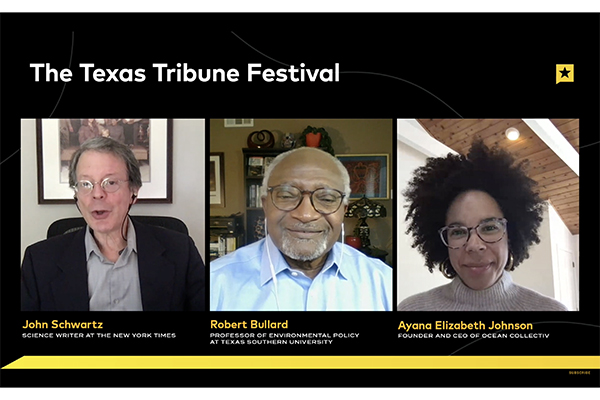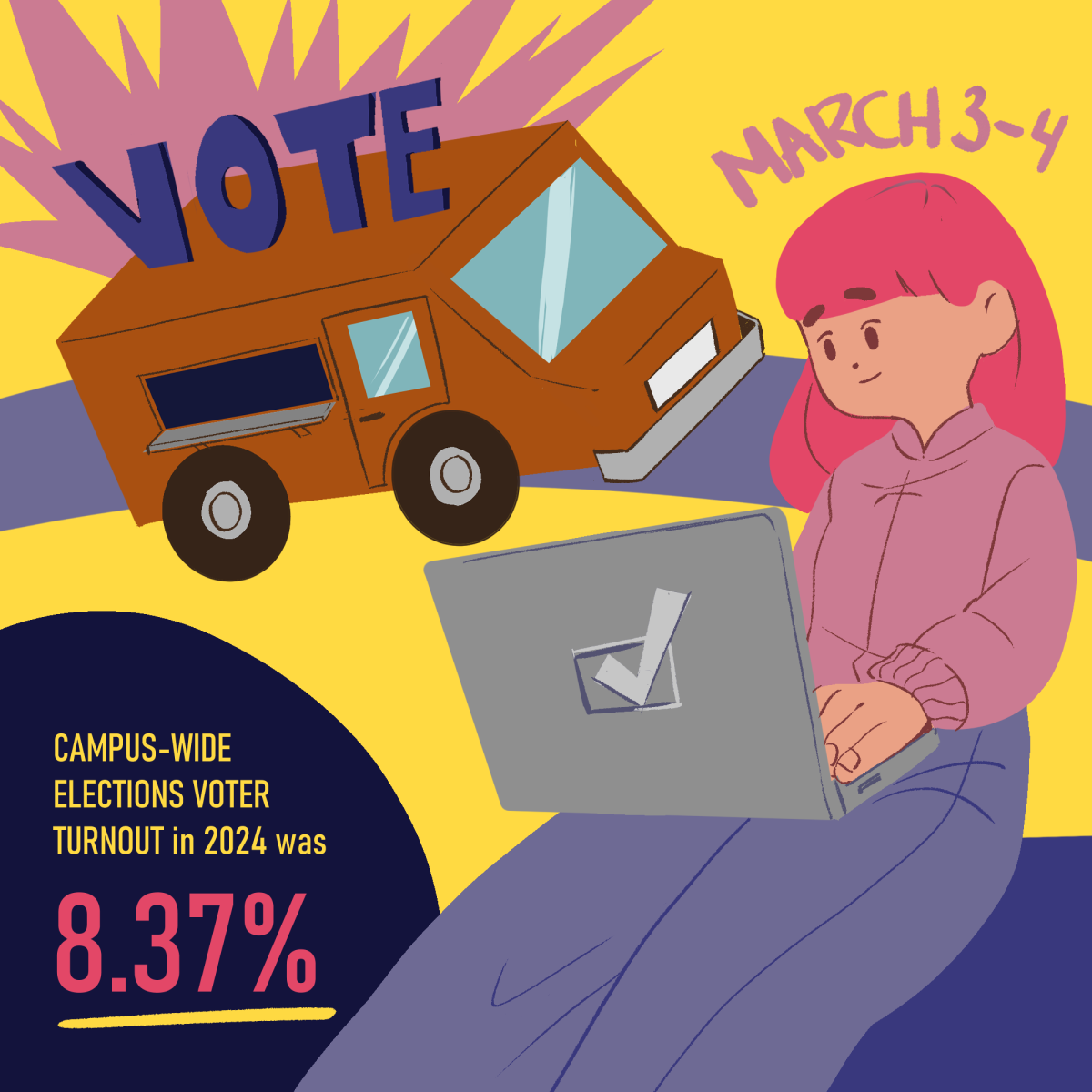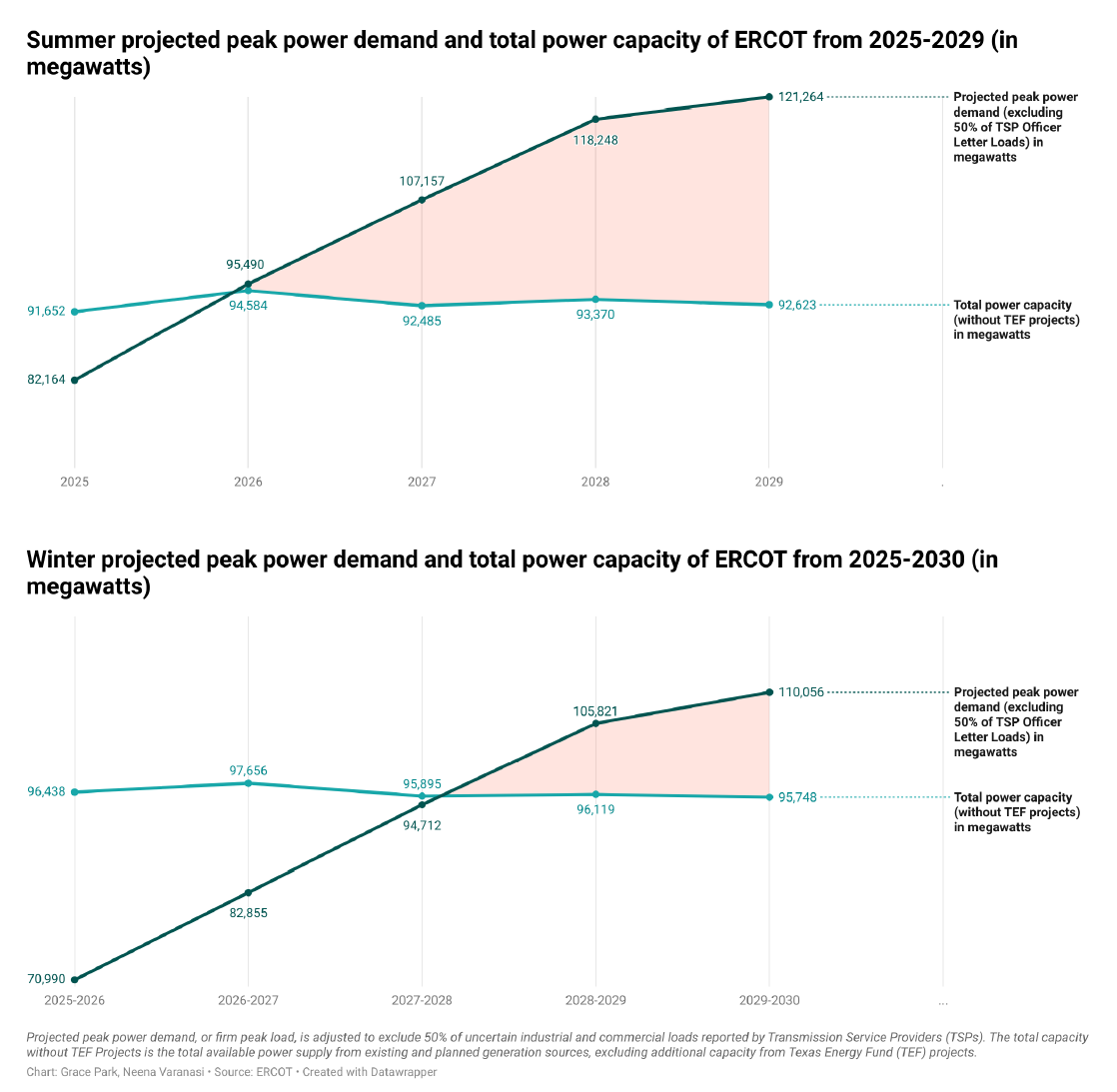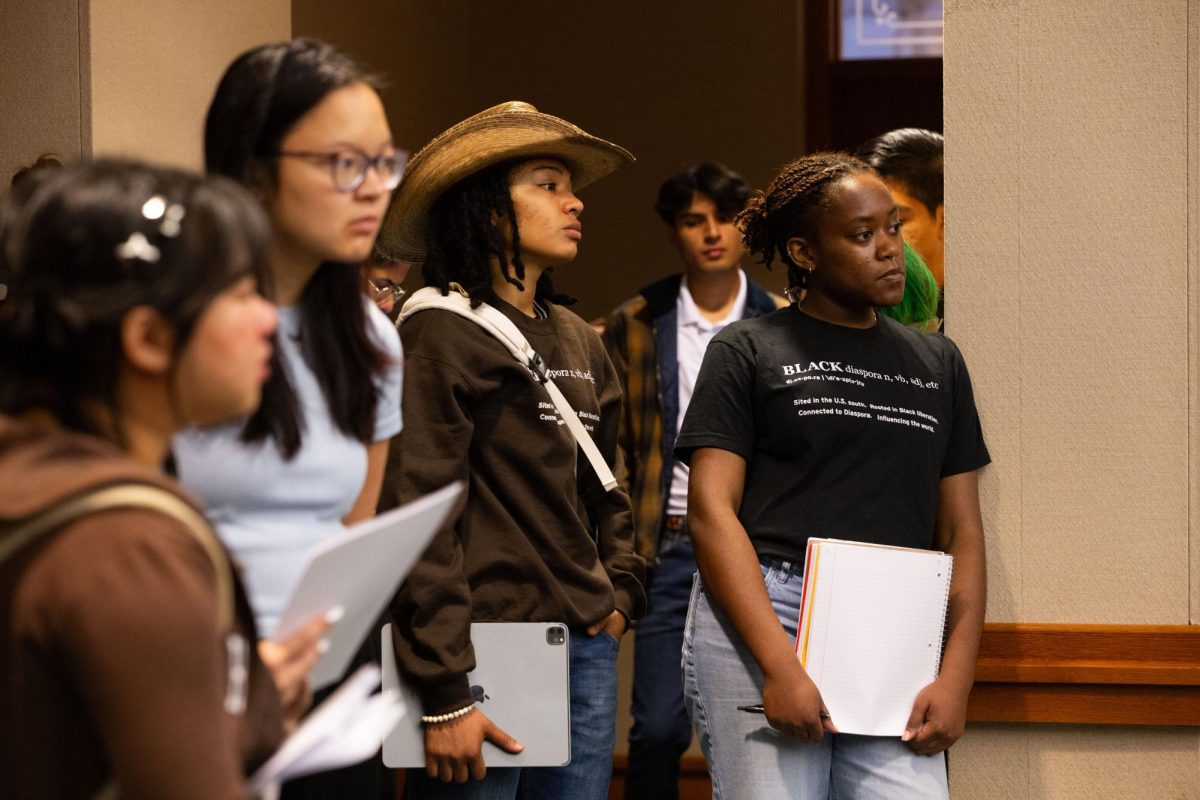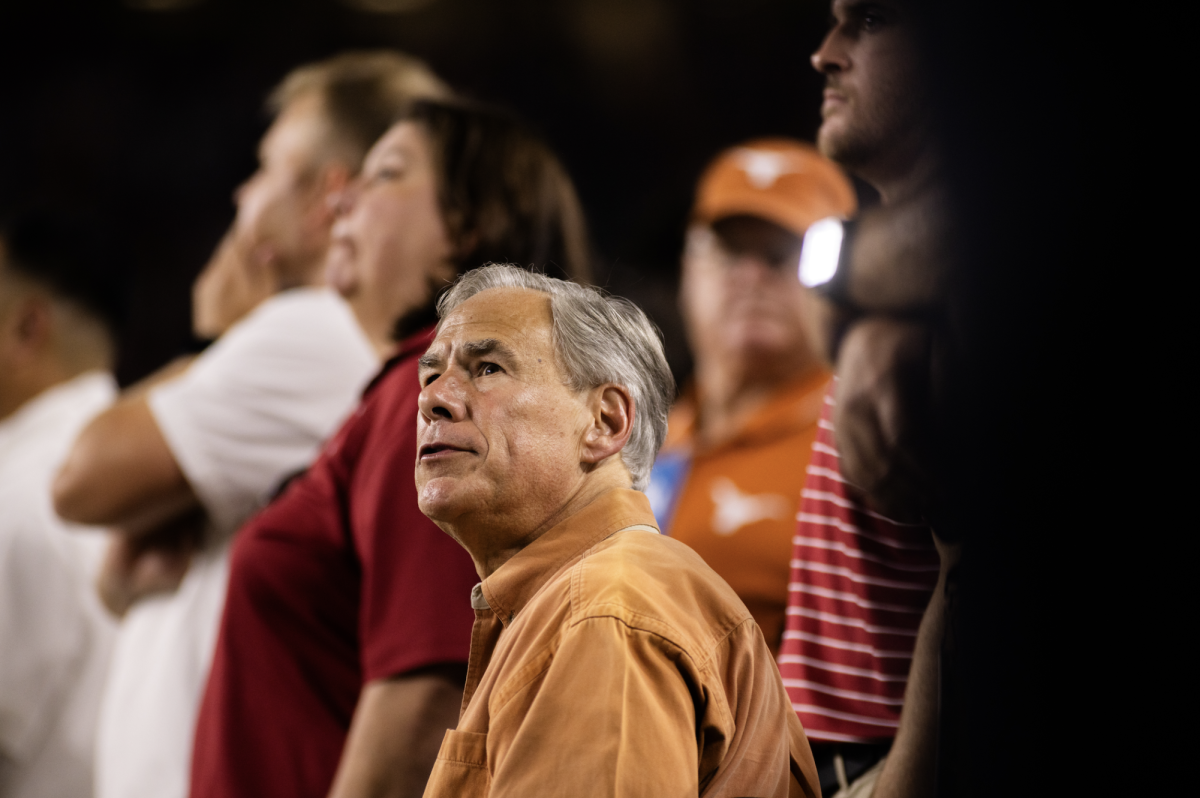Four climate science experts discussed climate change and its impact on race, politics and generations Wednesday morning in two prerecorded panels.
The panelists spoke about the importance of climate change and its implications for the 2020 election in the conversation “The Heat Is On,” which aired Wednesday morning as part of the 2020 Texas Tribune Festival.
Robert Bullard, distinguished professor of urban planning and environmental policy at Texas Southern University, said the environmental justice movement was born out of communities who want equal protection from environmental laws.
“It's a long-term struggle that communities have to address — systemic racism, economic injustice, discriminatory land use planning and zoning, as well as equal protection,” Bullard said. “This is a fight to the death, and most communities are choosing life.”
Bullard said he helped relaunch the National Black Environmental Justice Network, a Black grassroots environmental organization that was previously disbanded. The organization relaunched this summer because of national issues, such as voter suppression and the recent police killings of Black Americans, Bullard said.
“This was the magic moment (when) we had to say, ‘We must act,’” Bullard said. “As John Lewis said, ‘If you see something, do something, and it's time to get in some good trouble.’ That's why we brought it back.”
Ayana Elizabeth Johnson, founder and CEO of conservation consulting firm Ocean Collectiv, said it’s dangerous to say “fix” or “solve” when talking about climate change because environmental problems will never go away.
“If this were a problem where a bunch of engineers in a conference room somewhere could come up with some solution and fix it, it would already be fixed,” Johnson said.
Varshini Prakash, executive director and co-founder of the Sunrise Movement, a youth-led political action organization, said she has seen young people advocate for political action on climate change in unprecedented numbers.
“I'm feeling a lot of hope for how fired up young people are right now,” Prakash said. “We're seeing activation from young people in numbers and with an enthusiasm that I've never seen before.”
Katherine Hayhoe, political science professor and co-director of the Climate Science Center at Texas Tech University, said climate change remains the most politically polarized issue in the entire country.
“A thermometer isn't Democrat or Republican. It doesn't give us a different answer depending on how we vote,” Hayhoe said. “Climate change is not a right or left, or a red or blue issue. Climate change is a human issue.”
Hayhoe said there are many lessons to be learned this year from the parallels between the coronavirus pandemic and climate crisis.
“When coronavirus first started, we had the same issue we have with climate change,” Hayhoe said. “We thought it was distant in space, it was happening over there, but not here. … But all too soon, we realized that it was here, and it was now.”
Bullard said Texas is on the front-lines of climate change, and that an intergenerational approach built on previous movements must be taken to fight climate change.
“Climate change is climate justice, is economic justice, is racial justice, is energy justice,” Bullard said. “We have to make sure that all those things converge and come together. We're getting there. And I think if we can do it in Texas, it can happen everywhere.”

